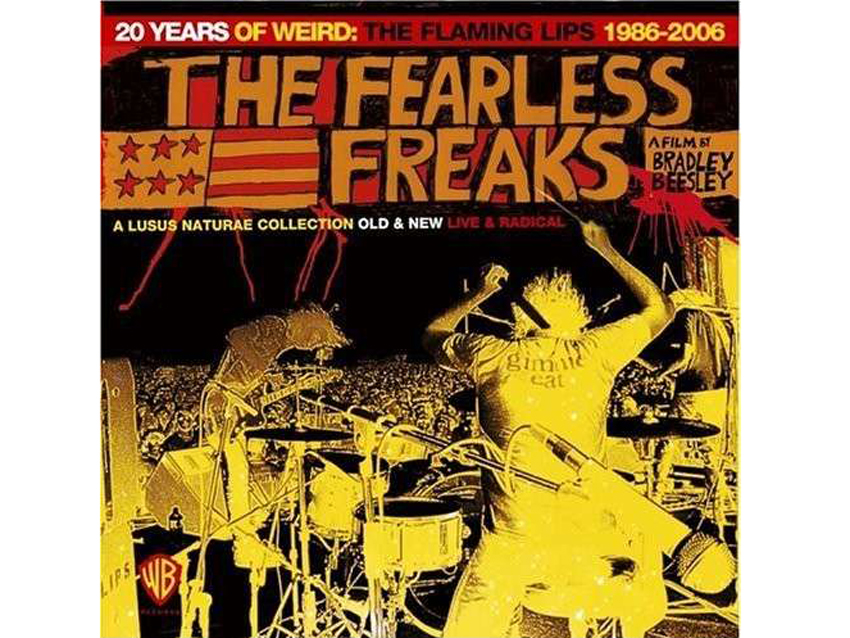
Mike Portnoy picks 10 essential rock movies
"In addition to being a world-class drummer and a passionate, lifelong music aficionado, Mike Portnoy is also a devoted cineaste. Over the years, he's amassed a sizable DVD library of films by some of his favorite directors such as David Lynch, Stanley Kubrick and Paul Thomas Anderson.
As you might expect, the combination of music and cinema is one that holds a special place in Portnoy's heart, and on the following pages, he lists (in no particular order) and discusses his favorites in the genre of rock movies.
Beyond great music, what are any other aesthetic sensibilities you feel are important for a truly great rock film?
“To me, the most interesting rock films allow us to see artists in their natural habitat – on tour or in the studio. The director stays out of their way and lets the story unfold naturally while capturing the moments.”
“I am spoiled with a home theater that is better than most movie theaters." [Laughs]
Have there been times when you weren't a particular fan of a band, or just weren't familiar with their music, but the film turned you around?
“Yep, absolutely. Several of the films in my top 10 list are about bands I wasn't yet a fan of until I saw the movie. That was the case with Dig!, along with the Wilco and Flaming Lips films. In fact, I'm often even more intrigued by a rockumentary knowing nothing about the band or its music beforehand. In those cases, it's almost like watching a scripted film with actors.”
At the same time, have there been any films about bands you love that you were underwhelmed by?
“I don't want to say underwhelmed, but if you look at my list, my all-time fave bands – The Beatles, Led Zeppelin, Pink Floyd, Frank Zappa – aren’t even represented. That's not to say they haven't made great films, because they have. Help, Let It Be, The Song Remains The Same, The Wall, Live At Pompeii and Baby Snakes are also all-time faves. But for some reason, I have a soft spot for the reality of rock documentaries, so my top 10 list focuses more on that style of film.”
In the ‘70s and ‘80s, certain theaters specialized in late-night showings of rock films. They were equipped with special sound equipment to make the screenings more like ‘events.’ When you were growing up, was there a favorite theater you would go to for rock films?
“Indeed. I used to love the Mini Cinema on Long Island. I remember seeing the Sex Pistols’ D.O.A., the Ramones’ Rock & Roll High School and, of course, The Rocky Horror Picture Show there many times. In fact, I would cut out and save their newspaper ads each week just to see the collections of films I needed to get around to seeing.
“And then, of course, there were the sibling theaters in Monterey, California, that I would go to during the summers while visiting my dad out west: The 812 Cinema, which I wrote about in Dream Theater’s The Best Of Times, and the real Dream Theater itself, from which we got our name.
“Between those two theaters, I would regularly go see films like Harold And Maude, A Clockwork Orange, Yellow Submarine and Rocky Horror countless times. I would even sneak in my tape recorder to record the audio as we didn't have videotapes or cameras back then.”
Those days are kind of a thing of the past. Is it a little less appealing now to experience rock films, especially for the first time, on your computer? Or do you reserve those viewings for at home, on a screen with good sound?
“I am spoiled with a home theater that is better than most movie theaters [laughs], but I still can enjoy a good rock documentary with headphones plugged into my laptop whether I’m on an airplane or a tour bus.”
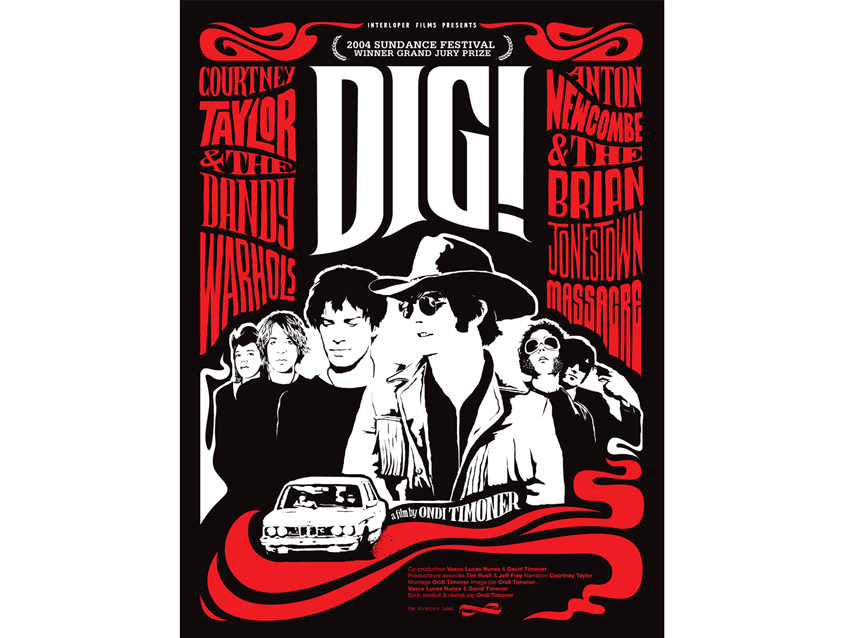
Dig! (2004) Directed by Ondi Timoner
“Even though I said these films were in no particular order, this one could be number one on my list. Never before have I ever seen a crazier group of characters than the guys in the Brian Jonestown Massacre, and their leader, Anton Newcombe, is just absolutely, insanely fascinating to watch. It's like a car crash you can't help but look at.
“This film depicts the ongoing love/hate relationship between them and The Dandy Warhols and details their careers, through their ups and downs, over the course of seven years.”
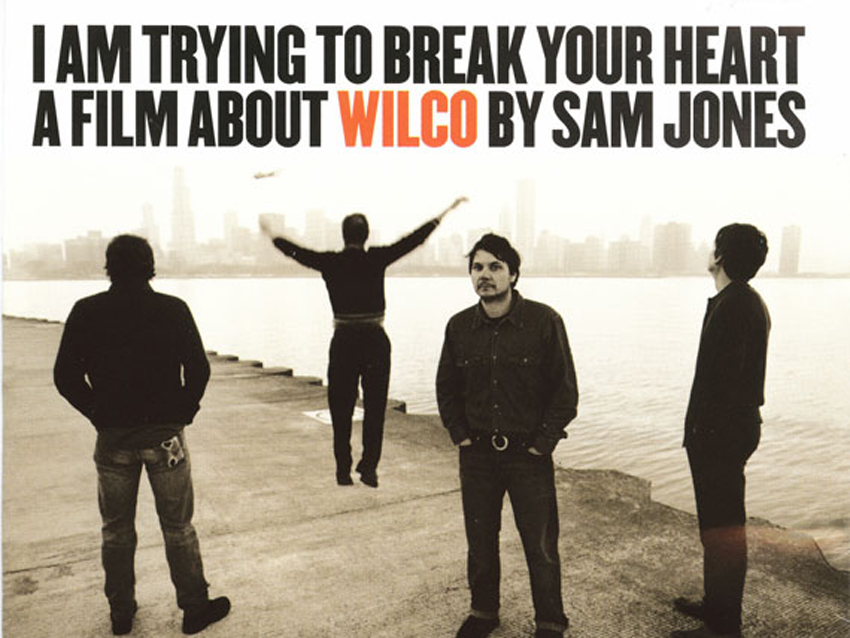
I Am Trying To Break Your Heart: A Film About Wilco (2002) Directed by Sam Jones
“What started as simply a ‘making of new album’ documentary ultimately became a statement about everything that is wrong with the record business – or should I say was wrong with the record business, as labels now have their own set of problems these days.
“You see a band make their ‘masterpiece’ [Yankee Foxtrot Hotel], a record that winds up being buried by the label, which then screws them over. And on top of it all – spoiler alert – there’s the loss of a key member during the process. All of this happens while the camera is rolling. For the filmmakers, this was an instance of being in the ‘right place at the wrong time.’”
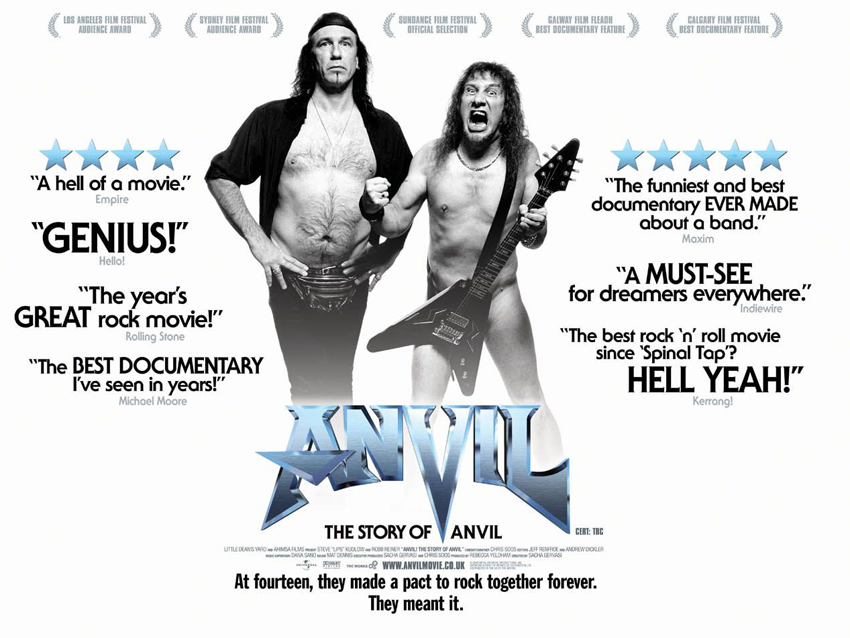
Anvil: The Story Of Anvil (2008) Directed by Sacha Gervasi
“If I weren't already a fan of the band, I would swear this was a ‘mockumentary’ a la Spinal Tap. This is an incredible story of perseverance with the ultimate happy ending, not at the end of the actual movie, but in real life, as a result of the film.”
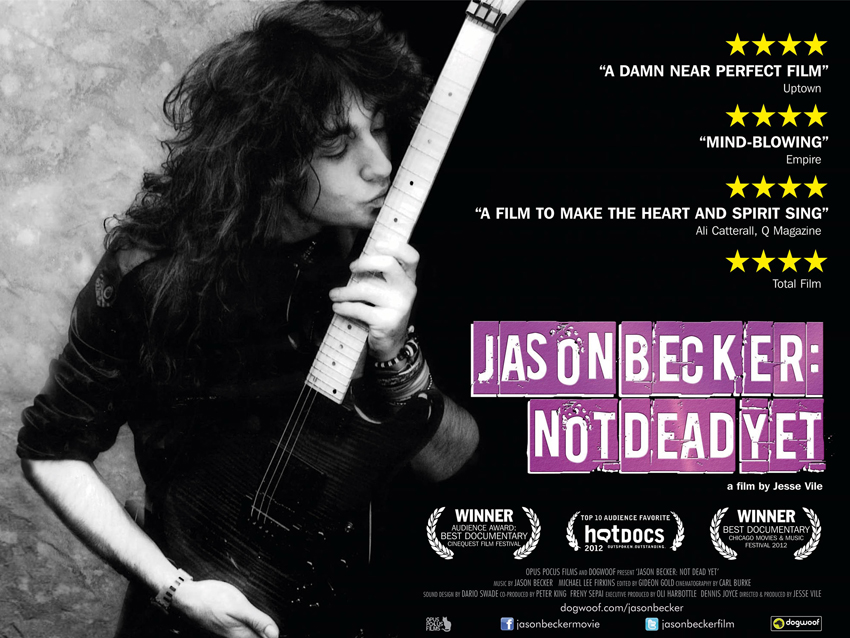
Jason Becker: Not Dead Yet (2012) Directed by Jesse Vile
“Did you do the ALS Ice Bucket Challenge this summer? Do you even know what ALS is? Well, this film is the sad reality of one man’s battle over the disease.
“Jason was an incredibly gifted guitarist who has been unable to walk or even speak for the past 25 years as a result of ALS. Seeing this film blew me away. Jason’s strength, dignity and courage is an absolutely inspiration.”
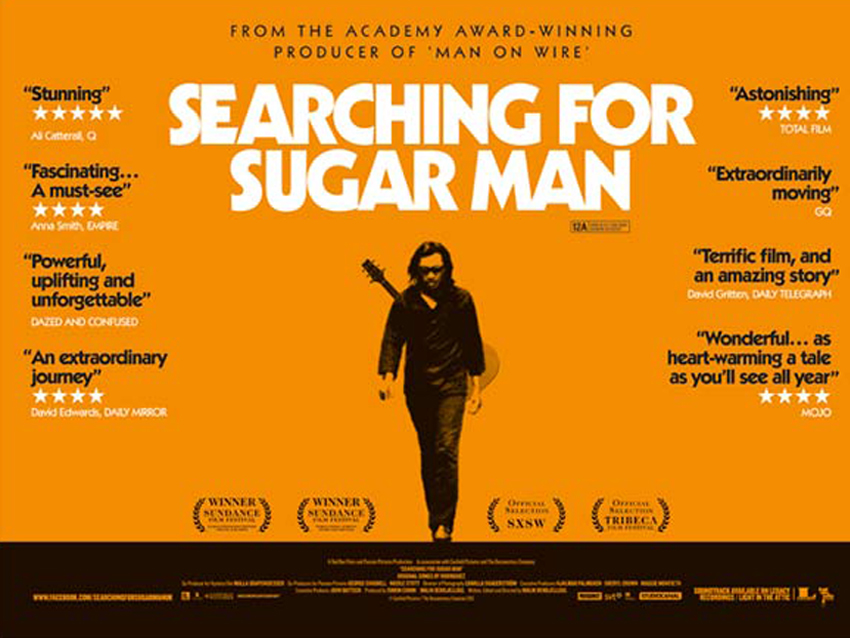
Seaching For Sugarman (2012) Directed by Malik Bendjelloul
“An incredibly well-done film that tells the story of Sixto Rodriguez, a forgotten folk artist from the early ‘70s, and his completely unexpected comeback 40 years later.
“It’s similar to the Anvil film, with its ‘better late than never’ happy ending. Another great example of life imitating art – or is it art imitating life?”
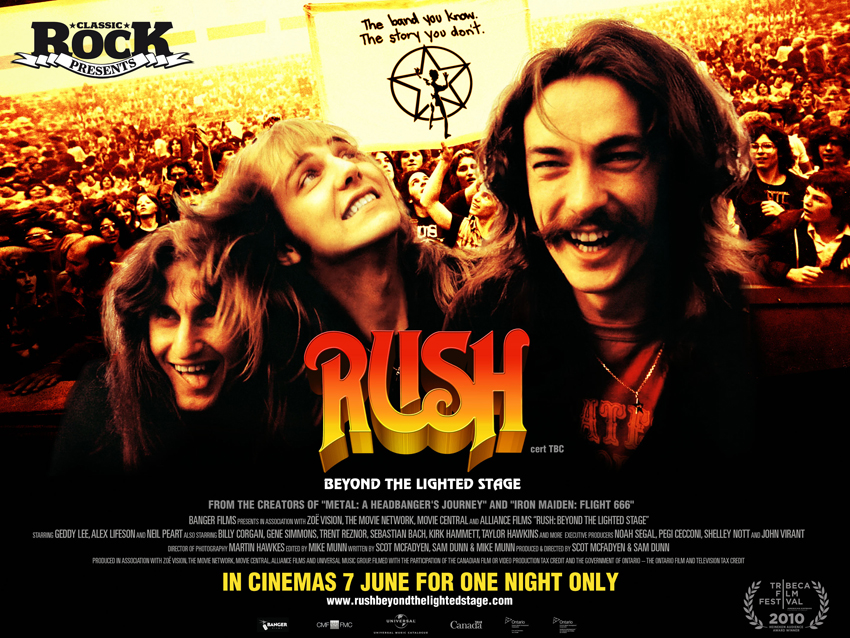
Rush: Beyond The Lighted Stage (2010) Directed by Scot McFadyen and Sam Dunn
“Rush were always the biggest ‘underground’ band in the world, selling platinum albums and packing arenas without any mainstream exposure. They never had a feature in Rolling Stone magazine until this film came out, and even then they weren't mentioned on the cover because the president was on the cover that particular week.
“This film is the ultimate tribute to the ultimate muso band, one which yours truly and dozens of other musicians pay tribute to throughout the film. All hail Rush!”
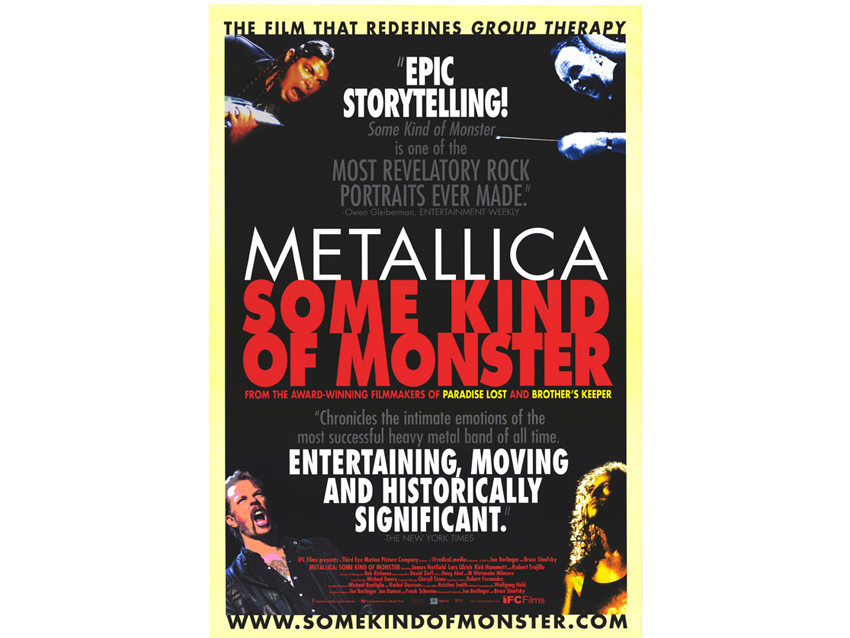
Some Kind Of Monster (2004) Directed by Joe Berlinger and Bruce Sinofsky
“The heavy metal Let It Be, except with a happier ending. Like the Beatles film, which captured the band at a personal crossroads – and soon after, they dissolved – Some Kind Of Monster finds Metallica in a similar state of affairs.
“Many people criticized the band for exposing so much of themselves, but I applaud them for it. As someone who was in one band for 25 years, I can relate to a lot of the emotions the members were feeling . Every one of their issues were real and honest, just like Metallica have always been.”
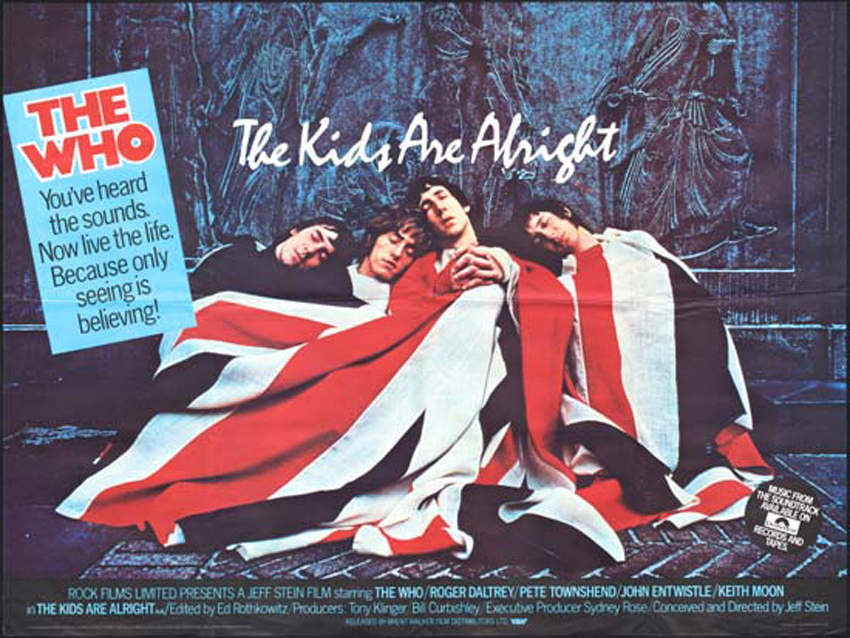
The Kids Are Alright (1979) Directed by Jeff Stein
“This movie had a huge impact on me personally. Whereas many musicians cite seeing The Beatles on Ed Sullivan as ‘that moment,’ for me it was when I saw The Kids Are Alright, a film that showed me exactly what I wanted to do – and the type of drummer I wanted to be.
“I had already been a Who for 10 years when this film came out, but I only knew them through their records. Seeing Keith Moon on the silver screen, with all his personality, charisma and drumming talents, completely changed my life. I've been hogging the spotlight from every one of my band members ever since!” [Laughs]
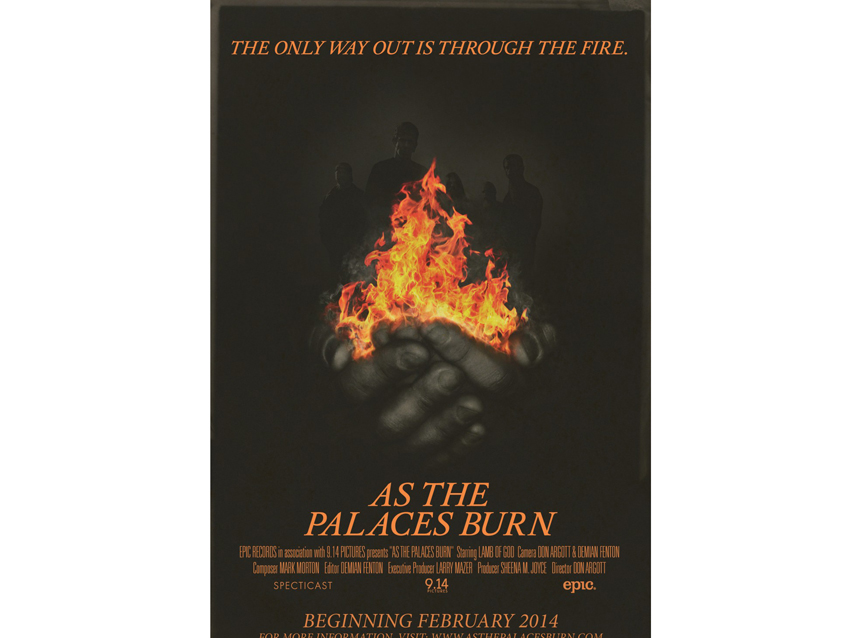
As The Palaces Burn (2014) Directed by Scot McFadyen and Sam Dunn
“Another example of being in the ‘right place at the wrong time,’ this was supposed to be a documentary about Lamb Of Gods fans, but in an unexpected twist of fate, it wound up detailing lead singer Randy Blythe's journal through personal hell.
“The entire band displays an astonishing amount of strength and dedication throughout the film, which is a truly powerful portrait of a horrible injustice and Randy's incredible moral code. He’s an inspiring example of everything that is right about some people in a genre where others only see what's wrong.”
Joe is a freelance journalist who has, over the past few decades, interviewed hundreds of guitarists for Guitar World, Guitar Player, MusicRadar and Classic Rock. He is also a former editor of Guitar World, contributing writer for Guitar Aficionado and VP of A&R for Island Records. He’s an enthusiastic guitarist, but he’s nowhere near the likes of the people he interviews. Surprisingly, his skills are more suited to the drums. If you need a drummer for your Beatles tribute band, look him up.
